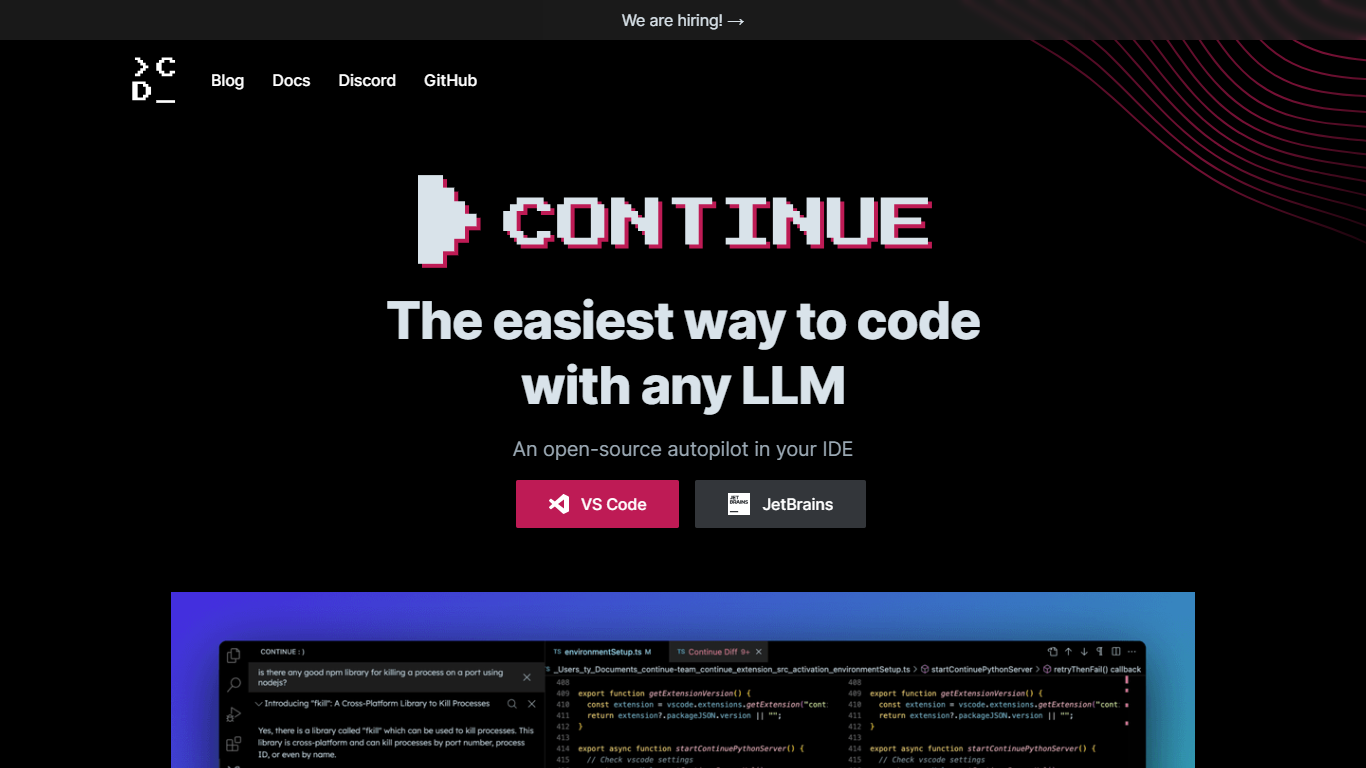Continue vs Codex
When comparing Continue vs Codex, which AI Code Assistant tool shines brighter? We look at pricing, alternatives, upvotes, features, reviews, and more.
In a comparison between Continue and Codex, which one comes out on top?
When we put Continue and Codex side by side, both being AI-powered code assistant tools, With more upvotes, Continue is the preferred choice. The number of upvotes for Continue stands at 6, and for Codex it's 5.
Think we got it wrong? Cast your vote and show us who's boss!
Continue

What is Continue?
Continue Dev, Inc. is revolutionizing the way developers interact with coding by integrating large language models (LLMs) directly within Integrated Development Environments (IDEs). This open-source autopilot tool for coding allows for seamless code generation, refactoring, and explanation within popular IDEs like VS Code and JetBrains. Developers can stay in the zone without switching windows with in-IDE natural language editing, task completions, and code querying.
They can also generate entire new files from scratch for various programming needs. Compatible with a wide array of LLMs and deployable locally or via the cloud, Continue empowers developer teams with context-aware assistance tailored to their specific codebases. It features offline functionality, customizable modules, and the capacity to finetune models with development data, ensuring a bespoke coding assistant experience. Teams can easily collaborate and streamline their coding efficiency with Continue.
Codex

What is Codex?
OpenAI Codex is the latest advancement from OpenAI, a cutting-edge AI system designed to understand and translate natural language into code. This powerful tool is now available through a private API in private beta, broadening its accessibility for businesses and developers aiming to create more intuitive natural language interfaces for their applications.
OpenAI Codex excels at a range of programming tasks, including transpilation, code explanation, and refactoring. It supports a wide array of programming languages such as Python, JavaScript, Go, Perl, PHP, Ruby, Swift, TypeScript, and even Shell, making it an incredibly versatile coding assistant. Its 14KB memory for Python code means it can handle complex contextual information with ease, offering more comprehensive coding solutions compared to its predecessor, GPT-3. OpenAI Codex not only boosts productivity by simplifying the coding process but also lowers the barrier to entry for programming, opening doors for non-coders to interact with software in a more manageable way.
Continue Upvotes
Codex Upvotes
Continue Top Features
Direct IDE Integration: Seamlessly code within your IDE without the need to switch windows or copy-paste code.
Compatibility with Multiple LLMs: Utilize various large language models including GPT-4 and Code LLama.
Dynamic Codebase Contextualization: Automatic context determination from your existing codebase enhances the relevance of assistance.
Comprehensive Offline Use: Local-first design allows offline use with optional vector database integration for personalized experiences.
Team Deployment Options: Set up Continue for use by your entire team, allowing for uniform coding assistance across your projects.
Codex Top Features
Improved AI System: OpenAI Codex is an advanced system that turns natural language into code.
Support for Multiple Programming Languages: Capable in Python, JavaScript, Go, Perl, PHP, Ruby, Swift, TypeScript, and Shell.
Larger Contextual Memory: Offers a 14KB memory for Python code, allowing for complex tasks.
Versatile Functionality: Suitable for transpilation, code explanation, and refactoring.
Accessibility through API: Released in private beta for developers and businesses to build upon.
Continue Category
- Code Assistant
Codex Category
- Code Assistant
Continue Pricing Type
- Freemium
Codex Pricing Type
- Freemium
